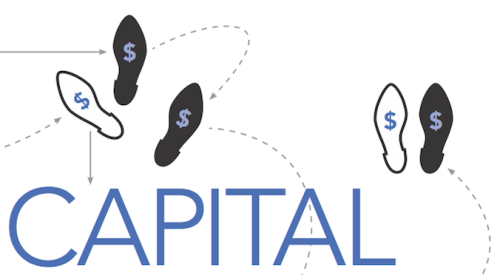| Contact Noelle Tarabulski at PB@buildertools.com
|
Technology investments might have to really pay off during the next 12 to 18 months. As we all have noticed, it’s a little crazy on Wall Street, employment-to-permits ratios are shifting quicker in some markets, and it’s beginning to feel as if we need to batten down the hatches. Owners are being challenged to spend money and time wisely. It’s amazing how you can focus when absolutely necessary.
Be prepared for anything because anything can happen in an economic climate like we now have. You need to be savvy about how you invest time and money to increase revenue and decrease costs.
The industry has struggled to find the purest return on technological investments, but the coming months will help clarify what builders should be doing with various tools and systems to improve operations. It’s amazing how a little turbulence can hone your business acumen.
I spend a good part of my time filtering the practical from the impractical, the difficult from the impossible, and the real from the theoretical, so I feel that most builders would appreciate a discussion of how they should spend money to save money. How do you get excellent payback for money spent, and what should you expect if things are implemented correctly? Key point here — correctly.
Keep in mind that a payback within 12 to 24 months is considered excellent for most companies. In constricting markets, it’s paramount that money-saving decisions have rapid payback. Also keep in mind that it takes most builders three tries to come close to creating effective operating systems. So be well-informed and develop a clear strategy before you enter the world of technological innovation. The good news is, you might have some obvious improvements to make that can make your business more efficient quickly.
Technology vendors and gurus have said for years that real savings can be achieved, and they can, but you need to understand how. The purpose of this article is to give you a short course based on the 80/20 principle of business management, meaning focus on what really counts because you might not have time to waste.
Every firm is at a different stage of technology implementation; some might be pushing the possibilities of wireless tools, while others are trying to get the budgeting process in order for the first time. Whatever the case, here are some of the most significant ways in which you can decrease operating costs:
Reduced staffing expense Have you spent any money training your staff on the use of your existing systems? If not, you might need to. You then should be able to get more done with fewer people. The remaining people will be happier with their jobs because they will have better skills and be more productive.
Effective workers If you determine your staff is not trainable to the level you need, you might need to replace employees with more highly trained and skilled workers. Make sure new hires are aligned with your company goals and objectives. Be sure they share your value system in the workplace. If you have people pulling down the morale and productivity of your group, consider if a change is needed.
Processes that shorten work tasks Implement software systems that clearly demonstrate operating efficiencies. Do not accept just a sales pitch from the software vendor; discuss the ways in which the software streamlines communications, distribution and work pro-cesses. Do not act as a beta site if you have financial challenges. Beta sites are critical to software development, and I encourage companies with financial and operational stability to serve as such sites. In fact, such companies often can have a quantum leap in productivity because of their excellent systems and skill sets. Strive to operate at that level, but do not risk the health of your company if you have too many operational challenges.
Data storage and usage Acquire software tools that help you produce and access effective reports from operations so that timely, effective decisions can be made. Data storage and retrieval methodologies are changing rapidly. Larger companies should look into the way in which they are storing and retrieving critical information. Other industries are seeing huge savings in this area.
Supply-chain relationships They can allow faster receipt of needed products, reduce cycle time and cost to carry, and improve operating efficiencies within your firm. Other savings are still being proved in the marketplace. Start simply and go for clear, winning solutions. Do not complicate matters. Simple and real improvement is better than complicated and nonexistent. Use proven vendors — get references.
Inventory management Can your Realtors and customers easily access which homes are for sale? Do your field supers manage the construction process correctly? Are the correct houses marked for delivery? It might seem simple, but the Internet can inform so many people so simply that a listing of your spec and quick-delivery homes should be on your Web page.
Customer management Are you communicating effectively with current and potential customers? Don’t overwhelm your staff, but the Internet allows for quick, effective communication. Are you using it for the simple process of sending pictures or sending documents that need to be signed?
Communication infrastructure Are you using T1 lines; have you looked at cable and wireless technology? The technology shakeout is causing many providers to lower monthly charges. Make sure you renegotiate your contracts, and be wary of signing long-term contracts as the prices continue to drop.
Added speed in communication lines This can save your staff time and quicken process flows. Prices for speed are dropping; invest in the reduction of wasted time from slowness in your remote and VPN locations. Make sure your computers and office network are not hindering your staff’s effectiveness because of slow process speed.
Cost per PO or invoice process Are there software products or processes that can reduce your costs? Improved speed and accuracy in your processes will save you money. This is such a huge area for most builders, and the confusion that can take place here is beyond compare.
Management of backup and data storage Is your IT staff being used effectively? Backup processes can take less time with the newer systems and processes. Ask your staff how long backup takes each day. It likely can be reduced with new software programs.
Improved organization and numbering of working files How much time does your staff waste looking for documents and other files on your server? Much more than you think, most likely. As a company grows, the controlled, orderly growth of files can determine the speed of growth and the efficiency of the entire company. Do not take this lightly. Have a plan on how to find and manage files effectively. The time savings for a firm can be immense. We see this as a constant problem for growing companies.
All companies have different strengths and weaknesses in their operating systems. Effective management in changing, uncertain times requires more attention to details that can enhance the spread between revenue and costs. In such times, not spending money in the areas of your company that can clearly use a facelift might determine if you survive tight economic times. Smart builders know that spending too little on the right things can be just as devastating as spending too much on the wrong things.












